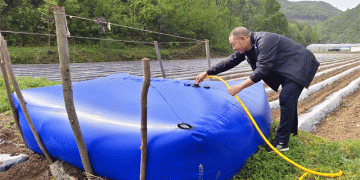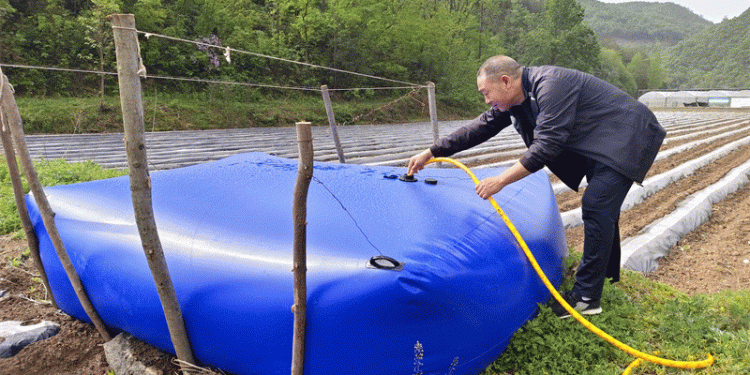In Nanzhang County, Hubei Province, tobacco farmers are battling a persistent problem known as the “neck-stuck drought” (卡脖子旱)—a critical dry spell that stunts seedling growth after transplanting and delays maturation, severely impacting yield and quality. Traditional irrigation methods are often inefficient, consuming excessive water while struggling with limited supply in mountainous areas.
To address this, the Xiangyang Tobacco Monopoly Bureau introduced an innovative “water bag + drip irrigation” system. Farmers like Ning Jingxu now rely on portable blue water bags (affectionately called “blue fatties”) that store 5 cubic meters of water and can be used for three years. Combined with sub-membrane drip irrigation, this system reduces water usage by 50-60% while improving fertilizer efficiency by 10-15%.
Key Benefits of the System:
- Cost-Effective: Farmers receive subsidies (¥500 per water bag and ¥70 per mu for drip irrigation), reducing out-of-pocket expenses to just ¥120 per mu.
- Labor Savings: The system cuts irrigation, fertilization, and pesticide labor by 2 workers per mu, making it economically viable within a single season.
- Enhanced Crop Quality: Consistent moisture prevents “stiff seedlings” (僵苗) and promotes uniform growth, leading to higher yields and better-quality leaves.
Expanding Beyond Fields: Water Bags in Seedling Nurseries
The innovation extends to tobacco nurseries, where a “water bag + sprinkler” fertigation system has doubled watering efficiency. Xiangyang has already deployed 68 mobile fertigation systems across seedling greenhouses, streamlining operations.
A Sustainable Model for Arid Farming
The “water bag + drip irrigation” system offers a scalable, low-cost solution for drought-prone regions, ensuring stable production while conserving resources. With government support and technological adoption, farmers can mitigate climate risks and secure higher profits.































